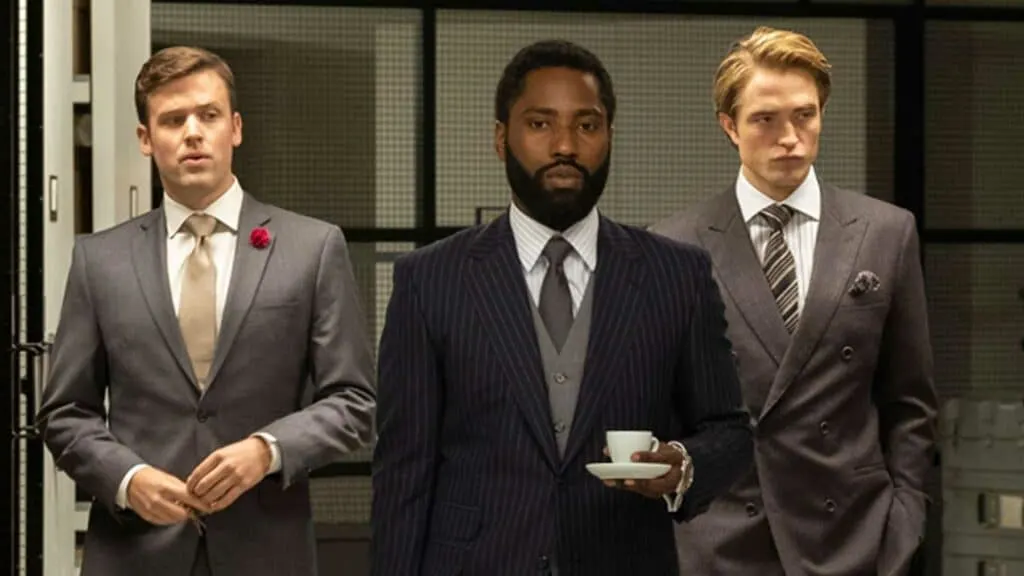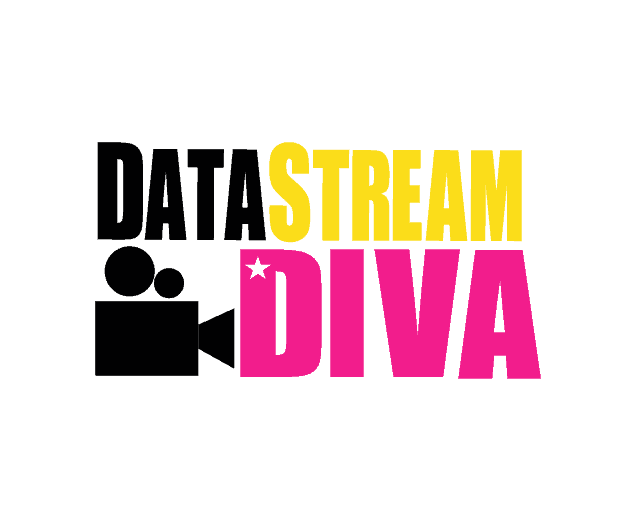- Beyond the Aquila Rift Explained: What The Ending Really Means - April 4, 2022
- Best Movies Like Paper Towns: Our Top Recommendations - April 4, 2022
- Best Movies Like Moana: Must-See for Disney Fans - March 4, 2022
Tenet was a nice dramatization of the last year we’ve had, in which the difficulty is in finding the underlying beauty. But once you understand it, it’s magnificent. At least the movie! And that’s why we want to bring you not only the most intriguing insights on Tenet but on top of that, we have the films that best match Christopher Nolan’s (confusing) masterpiece.
With ten feature films under his belt as the man in charge – eleven if we count this one – Christopher Nolan has transcended the term “director” to be classified as an “auteur” on his own merits. An adjective linked, among other things, to specific guidelines, obsessions, and signs of identity repeated, with certain variations, throughout his heterogeneous filmography. This marked style, personal and difficult to confuse, has turned the British filmmaker into an object of love and hatred. His sympathizers are defending his Spatio-temporal philias, complex structures, and peculiar brainy conception of the blockbuster. On the other side, his detractors harshly criticize what they consider his pretensions of a much more apparent and superficial complexity than what he is. With Tenet, this polarization, far from weakening, is destined to become even more acute; and this new and dazzling cinematic puzzle that shares much of its genetic code with the outstanding Inception is, possibly, the most “Christopher Nolan” of Christopher Nolan’s feature films. For -very- good, or for bad.High-Concept Over Everything Else
Immersing Yourself Into Difficulty
One of Christopher Nolan cinema’s outstanding claims lies in his unique ability to offer extraordinary premises that test the audience’s expectations of what they have seen and will get to see on the big screen. From the more restrained, like that of Memento to the multi-layered dream games of Inception or the quantum odysseys of Interstellar. That said, if I can safely say that Tenet is the most purely Nolan film signed by the director to date, it is thanks to how the conception of his mind-blowing high-concept and its translation on screen has been taken even further. A maneuver is as brilliant as it is risky that has required subordinating practically everything else to it, becoming the film’s greatest virtue and, at the same time, its most giant stick in the wheel. In Tenet, the concept on which the story revolves is everything, and the primary victim is a narrative that is forced to make certain sacrifices and concessions. Through excess oral exposition and a certain lack of character development. Interpreted, however, with solvency by the entire cast. To introduce the audience as soon as possible in its universe and keep the flame alive until the pyrotechnics explode in a mid-point to remember. Until its midpoint, the film is dominated by a chaotic succession of scenes set up with a dizzying cadence, which give shape to a conventional espionage thriller in the purest Bond-style, including a megalomaniacal and deranged villain. Over-information bombards the stalls, and you find yourself unable to blink as you try to search for answers only to find more unknowns and digest the grandiloquent spectacle that is happening in front of your eyes. When the show comes to an end, all the pieces that have been placed on the board seem to fit perfectly. Although an exercise of retrospective, back in time to the first bars, is necessary. With Tenet, its strategically placed clues and plot twists -some less shocking than one might expect- Christopher Nolan has made sure to refute with solid arguments all those who accused him of imbuing his works with a false complexity.The Art of the Blockbuster
Unfortunately, A Lost Art

Inception
The Perfect Playmate to Go Along with Tenet
The story follows Dom Cobb (Leonardo DiCaprio), a skilled thief, the best in the dangerous art of extraction: the theft of valuable secrets from deep within the subconscious during sleep, a time when the mind is most vulnerable. Reviewing Inception is complicated because there is sure to be a very different analysis from the rest for every viewer. Cobb’s exceptional ability has allowed him to become a coveted player in this new world of corporate espionage. Still, it has also made him an international fugitive and caused him to lose everything he cared about. Now he is being offered a chance to redeem himself. One last job could bring him back to his old life if he pulls off the impossible. Instead of the perfect heist, Cobb and his team of specialists have to reverse the operation; their job is not to steal an idea but to plant one. If they succeed, it could be a perfect crime. However, neither their careful planning nor their expertise can prepare the team for the dangerous enemy who seems to know their every move in advance. An enemy that only Cobb could prevent. Before Tenet and Interstellar, Nolan left us probably the best Superhero movie of all time with The Dark Knight, Inception he brought us a CRAZY movie, and I say that with capital letters.Source Code
Another Cinematographic Time Travel Wonder
Duncan Jones’s Source Code feels like a science fiction film for most of its running time. A man who is part of a mission wakes up in someone else’s body on a train and has only eight minutes to figure out who has planted a bomb on the train. Eight minutes, nothing more. As the viewer will know, the protagonist fails numerous times in his mission and returns, as if it were a curse, again and again, to the fateful train. A premise that may remind us of films like Groundhog Day or an episode of the excellent X-Files called Monday. Of course, the more astute will find a very, very direct wink to the series Quantum Leap, in which the protagonist’s method of time travel was similar to the one used here. However, we must emphasize that Source Code is not exactly a time travel movie. In it, they already take care of giving us a convenient explanation so that we do not get lost, one of those concessions to the public that in this case was not strictly necessary. Because the important thing about the film is not in its cyclical science fiction plot. Not even in its simple suspense plot. Which would delight the most carefree Hitchcock, but in its symbolic flood of images, work, and grace of Duncan Jones, who has managed to go further than in his laureate Moon. The greatness of Source Code does not lie in its labyrinthine plot in which, time and again, the protagonist -exceptional Jake Gyllenhaal, demonstrating, this time, yes, that he can be a charismatic action hero- must find a terrorist to avoid more tragedies. At a certain point in the story, Jones uncovers his cards and tells us about something much more important, the enormous distance that separates our desires from reality, what we always long for, and what we possess. As intimate as it is energetic, his directing work is reflected in moments as powerful as those that bathe the final third of the film, in which Jones reveals himself almost as a poet of the image.Blade Runner 2049
Science Fiction’s Most Anticipated Sequel
I remember when we were joking about the possibility of a Blade Runner 2 even though, considering the trend in Hollywood, it would most likely end up being made sooner or later. I guess we were taking the whole thing for a laugh so as not to assume the inevitable. And almost all of us shuddered when it was confirmed in 2011 that there would be a Blade Runner sequel. The signing of Denis Villeneuve completely turned the tables. His impact when he arrived in Hollywood, with thrillers like Prisoners or Sicario, has made him one of the most stimulating current authors in a short time, and his signature is already a guarantee of unquestionable quality. Since Arrival, I think we are in front of the new Nolan. With Villeneuve at the helm of the mise-en-scène and Roger Deakins as the cinematographer, we could at least be sure that Blade Runner 2049 would be visually stunning. And it is. It’s incredible. The narrative pulse and Hans Zimmer’s music help create that dreamlike atmosphere that characterized the 1982 classic. The start, similar to the first installment, immerses us immediately in this dystopian future of Los Angeles, the year 2049; we feel that we have returned to the universe of Blade Runner. Instead of Deckard (Harrison Ford), we have “K” (Ryan Gosling), and his first encounter with a replicant (Dave Bautista) begins to uncover surprises…Edge of Tomorrow
An Endless Spectacle
The blockbuster Edge of Tomorrow finds its best assets in the precise handling of the screenplay, direction, and editing in over two-thirds of the film. That is, the description of that day that William Cage’s (Tom Cruise) character, a cowardly major of the American army, is forced to live over and over again and from which he will only get out if he manages to eliminate the Omega, the brain behind the invasion of the lethal race of the mimetics. The time loop in which the bulk of the function is developed and, except for a couple of details that are not quite well stitched, the script signed by six hands by Christopher McQuarrie and Jez Butterworth is impeccable. The same goes for Cruise and Emily Blunt‘s roles or that sergeant who gives life to Bill Paxton. With clear reminiscences to Aliens, the actor’s inclusion provides a terse and concise dose of humor that helps the smooth flow of the film. A quality directly responsible for Liman’s adrenaline-filled direction, which is constantly renewed and (practically) shows no signs of exhaustion in the two hours of footage. Something that is not unrelated to the editing work of James Herbert, responsible, for example, for the vibrant editing of the two installments of the adventures of Sherlock Holmes signed by Guy Ritchie.FAQs
Answer: Tenet is the name of the organization that the Protagonist himself created—more on that in a bit—to keep the earth’s timeline flowing correctly. It’s also an interlocking hand gesture that indicates the flowing of time backward and forward, and a palindrome that’s spelled the same way in either direction.
Answer: The Protagonist, Neil, and Ives set out on a mission to lift the algorithm before the bomb explodes, while Kat heads to the yacht to stop Sator from killing himself before they’ve succeeded. A mind-bending battle follows where one half of the team is working backward to the explosion and the other working forwards.
Answer: Tenet is not an easy movie to understand. There are timeline twists, back-stabs, and more than a few paradoxes. Some cinema-goers are also finding Christopher Nolan’s latest blockbuster quite difficult to literally understand, with the sound mix being unashamedly brash.
Answer: Tenet: From Latin, it means to master, preserve, sustain. In the film, it’s a codeword that allows The Protagonist to “open doors”, but it’s also ultimately what he does with time inversion—masters, preserves, and sustains.
Answer: As Neil explains, this is the end of the story for him – he has to go back into the inverted side of the battle, so that he can open the gate and step in front of the bullet meant for The Protagonist. Neil’s loop is closed, but for The Protagonist, this is the beginning of their story together.
